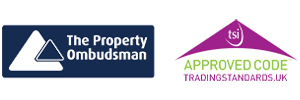Finding the right mortgage, what are my options?

- Mar 15th 2021
With the property market thriving and many of us looking to move into a new home or buy one for the first time, choosing your mortgage can be daunting with the many types and options available. It helps to be in the know, so we have written this blog explaining the different types of mortgages and how they work!
In principle, there are two primary types of mortgages: a fixed-rate mortgage and the other being a tracker mortgage.
With a fixed-rate mortgage, the interest that the lender will charge you is fixed for the term of the mortgage. Typically, an introductory rate will apply, and this will be for two, three or five years. However, longer deals are available.
Once your introductory offer expires, you will automatically move onto a higher interest rate, but this is where you then need to remortgage to a new product with a lower rate of interest.
Previously, you would need to move to a different lender to find a better deal once your current arrangement expired. However, lenders are keen to retain existing business by offering exclusive client deals.
On the other hand, the interest rate on a tracker mortgage will fluctuate in line with the Bank of England base rate changes. In principle, the introductory rate will still apply like a fixed-rate mortgage.
Both mortgages have their pros and cons, so you need to take time to make any decision and factor in all circumstances to ensure you find the best mortgage for you.
Let's look at fixed-rate mortgages. The main advantage of this type of mortgage is that you will know exactly what your monthly repayments will be each month. It makes it easier when you are budgeting, and importantly there are no surprises if the payment was to jump from one month to another like a tracker mortgage.
If you are looking to terminate your mortgage before the term is over, you will most likely face penalties, which could be as high as 5% of the amount borrowed. You should also take into account that some fixed-rate mortgages don't allow you to make overpayments.
With tracker mortgages, your monthly payments will fluctuate in line with the Bank of England base rate. However, most lenders are flexible when you come to make overpayments and often don't have an early termination penalty or will have a minor penalty compared to a fixed-rate mortgage.
It's essential to consider that currently, the Bank of England base rate is at the lowest it has ever been at 0.1%. But you should also calculate what your monthly payments would look like if the Bank of England would increase their interest rate to 0.5% or even 1%. Add this to your tracker interest rate, and your monthly payment could significantly go up.
For example, if you have borrowed £150,000 over 25 years with an interest rate of 2.51%, your monthly repayments would be £679.22 per month. If the Bank of England increased its rate to 1%, your new interest rate would be 3.51%, with a monthly repayment of £759.24. Take the same principle and increase the Bank of England's base rate by 2%, and you would be looking at a monthly payment of £843.85.
Although the likelihood of an increase to the Bank of England's base rate by 2% is unlikely in the near future, this does not mean that it can't still happen.
You should take all scenarios into account and choose the right type of mortgage for you!
There are several types of mortgages regarding repayment terms, including interest-only mortgage, repayment mortgage, and a tracker mortgage.
An interest rate mortgage means that you only pay the interest on your borrowing and pay the debt at the end of the term. A lender will rarely offer this type of mortgage payment on a residential mortgage. However, if you can demonstrate how you will pay the debt at the end of the term, you may be able to apply for this type of mortgage.
Landlords often choose this type of mortgage, where the lender will primarily look at the rental income vs the monthly interest-only payment, alongside other lending criteria.
A repayment mortgage allows you to repay a part of your borrowing every month. The main advantage of this type of mortgage is that you will outright own your home at the end of your mortgage term. This is a great way to plan for your future!
Another advantage of a repayment mortgage is that you are gradually reducing the debt you owe. So, when you are at the end of your introductory period and come to remortgage, you will be able to attract a lower interest rate as you have built more equity into the property. This, of course, doesn't take into account property prices, but looking at the last 20 years, your property value should increase, giving you more equity when you come to remortgage to a better deal.
On the other hand, offset mortgages offer a completely different approach. You will place your savings with the same lender and offset the balance against the mortgage. This means that you won't earn interest in the savings you have, but at the same time, you will not pay interest for the same amount on your mortgage.
The main advantage with an offset mortgage is that over time your monthly amount will be reduced. However, you will still have access to your savings should you need to. It offers excellent flexibility in the long run.
For example, if you had a £200,000 mortgage, at an interest rate of 2.5% over a term of 25 years, and £50,000 in savings, you could repay your mortgage three years and three months early, saving yourself £10,365 in interest.
Offset mortgages work best for people who have already accumulated significant savings.
Homeowners who do not have a substantial nest egg may be better off opting for the lowest mortgage rate they can find and the highest return on their savings.
There are many factors to consider when choosing a mortgage, including mortgage term, deal term and early repayment options. So take your time when choosing the right mortgage, as this can affect any changes in your future circumstances!
Whether you are looking to buy / sell a property or are looking for an introduction to a mortgage advisor who can help you source the right mortgage for you, speak with our property experts today by calling us on 0116 266 9977!
#Mortgage #FirstTimeBuyers #Remortgage #LeicesterPropertyMarket #Seths








